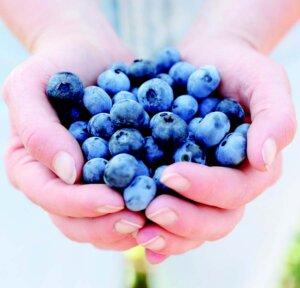Canadian Farms & Farmers
Who is growing our food?
Who is growing our food?
Fewer than two per cent of Canadians farm, and those who do are getting older. In fact, the average age of Canadian farmers reached 56 in 2021. However, farms are also getting bigger, and technology makes it much easier to produce the same amount – or more – of food than in the past. You can read more about the technology used in farming today in chapter 7. Young farmers in Canada are defined as those under the age of 35. Many young farmers supplement their farming activities with off-farm revenue, working in management, business, finance, trades, health, education, or natural resources and agriculture-related jobs. How much outside income they contribute to the farm business varies significantly by farm type, the size and profitability of the farm, the seasonality of production, and what types of opportunities they have in their region to work away from the farm.

Women who farm

In 2021, the number of female farmers in Canada increased for the first time in 30 years. According to the latest Census of Agriculture data, almost 80,000 — or about 30 per cent — of Canada’s farmers are women. This compares to 28.7 per cent in 2016, and 25 per cent in 1996, and is entirely because more women are deciding to farm on their own, instead of together with family or business partners, with women in Alberta and Saskatchewan who raise cattle or grow grains and oilseeds leading the way. However, almost half of Canada’s female farmers also work outside the farm to supplement their income, with 57.7 per cent of them spending 30 hours or more at an off-farm job.
Where are Canada’s female farmers?
BC, Alberta, and Ontario have the highest numbers of female farmers, but it’s in the North where women make up the highest proportion of farmers (43.3 per cent). Sheep and goat farms are most likely to be run by female farmers. Various women in agriculture, including female farmers, have been inducted into the Canadian Agricultural Hall of Fame for their outstanding contributions to their sectors.
Canadian farms are defined by families
In Canada, farming is all about family. Many farms are handed down from generation to generation in a process called transition. Farm owners often work together with their children and grandchildren in their families’ farming businesses – and there are farms in Canada that have now been home to nine generations or more of the same family. Can a farm be a family farm and a corporation at the same time? Yes! As with many Canadian businesses, some farm families have opted to incorporate their farms. This entity is a business or ownership structure, but it has nothing to do with how big or small a farm is, or how well animals or crops are cared for. According to the 2021 Census of Agriculture, 22.8 per cent of Canadian farms are family corporations (only 2.4 per cent of incorporated farms are non-family corporations).


